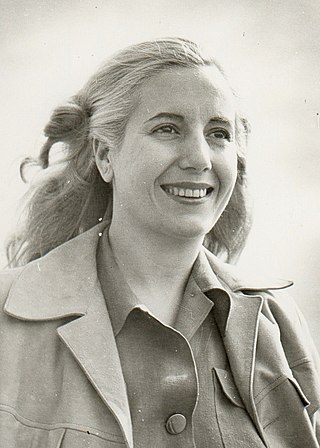External links
- (in Spanish) Argentine Primera statistics [usurped]
| Personal information | |||
|---|---|---|---|
| Full name | Antonio Piergüidi | ||
| Date of birth | August 25, 1985 | ||
| Place of birth | Henderson, Argentina | ||
| Height | 1.72 m (5 ft 8 in) | ||
| Position(s) | Forward | ||
| Team information | |||
Current team | Club Sportivo Estudiantes | ||
| Number | 9 | ||
| Youth career | |||
| 1994–2005 | Gimnasia LP | ||
| Senior career* | |||
| Years | Team | Apps | (Gls) |
| 2005–2008 | Gimnasia LP | 48 | (8) |
| 2008–2009 | Quilmes | 13 | (0) |
| 2009–2010 | Huracán de Comodoro Rivadavia | ? | (?) |
| 2010–2011 | Club Rivadavia | ? | (?) |
| 2011–2012 | U. S. Feltreseprealpi | ? | (?) |
| 2012–2013 | Barracas Central | ? | (?) |
| 2013–2014 | Huracán de San Rafael | ? | (?) |
| 2014–2015 | Deportivo Maipú | ? | (?) |
| 2015– | Club Sportivo Estudiantes | ? | (?) |
| *Club domestic league appearances and goals, correct as of 20:15, 3 October 2009 (UTC) | |||
Antonio Piergüidi (born 25 August 1985 in Henderson, Buenos Aires Province, Argentina), is a football forward who most recently played for Quilmes in the Argentine 2nd division.
Piergüidi made 43 league appearances for Gimnasia y Esgrima de La Plata between 2006 and 2008, scoring 8 goals.

Diego Armando Maradona Franco was an Argentine professional football player and manager. Widely regarded as one of the greatest players in the history of the sport, he was one of the two joint winners of the FIFA Player of the 20th Century award, alongside Pelé.

The Falklands War was a ten-week undeclared war between Argentina and the United Kingdom in 1982 over two British dependent territories in the South Atlantic: the Falkland Islands and its territorial dependency, South Georgia and the South Sandwich Islands. The conflict began on 2 April 1982, when Argentina invaded and occupied the Falkland Islands, followed by the invasion of South Georgia the next day. On 5 April, the British government dispatched a naval task force to engage the Argentine Navy and Air Force before making an amphibious assault on the islands. The conflict lasted 74 days and ended with an Argentine surrender on 14 June, returning the islands to British control. In total, 649 Argentine military personnel, 255 British military personnel, and three Falkland Islanders were killed during the hostilities.

South America is a continent entirely in the Western Hemisphere and mostly in the Southern Hemisphere, with a considerably smaller portion in the Northern Hemisphere. It can also be described as the southern subregion of the Americas.

María Eva Duarte de Perón, better known as just Eva Perón or by the nickname Evita, was an Argentine politician, activist, actress, and philanthropist who served as First Lady of Argentina from June 1946 until her death in July 1952, as the wife of Argentine President Juan Perón. She was born in poverty in the rural village of Los Toldos, in the Pampas, as the youngest of five children. In 1934, at the age of 15, she moved to the nation's capital of Buenos Aires to pursue a career as a stage, radio, and film actress. She married Perón in 1945, when he was still an army colonel, and was propelled into the political stage when he became President in 1946. She became a central figure of Peronism and Argentine culture because of the Eva Perón Foundation, a charitable organization that had a huge impact in Argentine society.

Patagonia is a geographical region that encompasses the southern end of South America, governed by Argentina and Chile. The region comprises the southern section of the Andes Mountains with lakes, fjords, temperate rainforests, and glaciers in the west and deserts, tablelands, and steppes to the east. Patagonia is bounded by the Pacific Ocean on the west, the Atlantic Ocean to the east, and many bodies of water that connect them, such as the Strait of Magellan, the Beagle Channel, and the Drake Passage to the south.

The 1978 FIFA World Cup was the 11th edition of the FIFA World Cup, a quadrennial international football world championship tournament among the men's senior national teams. It was held in Argentina between 1 and 25 June.

Argentina is divided into twenty-three federated states called provinces and one called the autonomous city of Buenos Aires, which is the federal capital of the republic as decided by the Argentine Congress. The provinces and the capital have their own constitutions and exist under a federal system.

Buenos Aires is the capital city of Argentina, on the western shore of the Río de la Plata on South America's southeastern coast. "Buenos aires" is Spanish for "fair winds" or "good airs". Buenos Aires is classified as an Alpha global city, according to the Globalization and World Cities Research Network (GaWC) 2020 ranking.

The Dirty War is the name used by the military junta or civic-military dictatorship of Argentina for its period of state terrorism in Argentina from 1974 to 1983 as a part of Operation Condor. During this campaign, military and security forces and death squads in the form of the Argentine Anticommunist Alliance hunted down any political dissidents and anyone believed to be associated with socialism, left-wing Peronism, or the Montoneros movement.

The Argentina national football team, nicknamed La Albiceleste, represents Argentina in men's international football and is administered by the Argentine Football Association, the governing body for football in Argentina.

The Primera División, known officially as Liga Profesional de Fútbol, or Torneo Sur Finanzas for sponsorship reasons, is a professional football league in Argentina, organised by the Argentine Football Association (AFA).

Lionel Andrés Messi, also known as Leo Messi, is an Argentine professional footballer who plays as a forward for and captains both Major League Soccer club Inter Miami and the Argentina national team. Widely regarded as one of the greatest players of all time, Messi set numerous records for individual accolades won throughout his professional footballing career such as eight Ballon d'Or awards and eight times being named the world's best player by FIFA. He is the most decorated player in the history of professional football having won 45 team trophies, including twelve league titles, four UEFA Champions Leagues, two Copa Américas, and one FIFA World Cup. Messi holds the records for most European Golden Shoes (6), most goals for a single club, most goals (474), hat-tricks (36) and assists (192) in La Liga, most matches played (39), assists (18) and goal contributions (34) in the Copa América, most matches played (26) and goal contributions (21) in the World Cup, most international appearances (189) and international goals (112) by a South American male, and the second-most in the latter category outright. A prolific goalscorer and creative playmaker, Messi has scored over 850 senior career goals for club and country.

The Falkland Islands is an archipelago in the South Atlantic Ocean on the Patagonian Shelf. The principal islands are about 300 mi (480 km) east of South America's southern Patagonian coast and about 752 mi (1,210 km) from Cape Dubouzet at the northern tip of the Antarctic Peninsula, at a latitude of about 52°S. The archipelago, with an area of 4,700 sq mi (12,000 km2), comprises East Falkland, West Falkland, and 776 smaller islands. As a British overseas territory, the Falklands have internal self-governance, but the United Kingdom takes responsibility for their defence and foreign affairs. The capital and largest settlement is Stanley on East Falkland.
Giovanni Guerra (1544–1618) was an Italian draughtsman and painter from Modena who worked in Rome. He probably arrived in the city as early as 1562, though he was not documented until 1583, when he frescoed three friezes of allegorical figures in the Palazzetto Cenci, a modest project for a patron who was not very prestigious.
Henderson is a town in Buenos Aires Province, Argentina. It is the administrative centre for Hipolito Yrigoyen Partido.

Argentina, officially the Argentine Republic, is a country in the southern half of South America. Argentina covers an area of 2,780,400 km2 (1,073,500 sq mi), making it the second-largest country in South America after Brazil, the fourth-largest country in the Americas, and the eighth-largest country in the world. It shares the bulk of the Southern Cone with Chile to the west, and is also bordered by Bolivia and Paraguay to the north, Brazil to the northeast, Uruguay and the South Atlantic Ocean to the east, and the Drake Passage to the south. Argentina is a federal state subdivided into twenty-three provinces, and one autonomous city, which is the federal capital and largest city of the nation, Buenos Aires. The provinces and the capital have their own constitutions, but exist under a federal system. Argentina claims sovereignty over the Falkland Islands, South Georgia and the South Sandwich Islands, the Southern Patagonian Ice Field, and a part of Antarctica.

Juan Domingo Perón was an Argentine lieutenant general, politician and statesman who served as the 29th President of Argentina from 1946 to his overthrow in 1955, and again as the 40th President from October 1973 to his death in July 1974. He is the only Argentine president elected three times, and holds the highest percentage of votes in clean elections with universal suffrage. Peron is the most important and controversial Argentine politician of the 20th century, and his influence extends to the present day. Peron's ideas, policies and movement are known as Peronism, which continues to be one of the major forces in Argentine politics.

Argentines are the people identified with the country of Argentina. This connection may be residential, legal, historical or cultural. For most Argentines, several of these connections exist and are collectively the source of their being Argentine. In the past the National Gentilic for Citizens of Argentina was mistakenly translated as Argentinians, a term that is no longer considered accurate.
Marcelo Enrique Guzmán is an Argentine professional footballer who plays as a midfielder.

The Fall of the Giants is a fresco by the Italian Renaissance artist Giulio Romano. Born in Rome Giulio Romano was a pupil of Raphael. In the year 1522 he was courted by Federico II Gonzaga, the ruler of Mantua, who wanted him as his court artist as he was especially attracted by his skill as an architect. In the year 1524 Romano moved to Mantua where he remained for the rest of his life. According to Vasari, Baltasare Castilliogne was delegated by Federico II Gonzaga to procure Romano to execute paintings and architectural projects in the city of Mantua, Italy. His masterpiece of architecture and fresco painting in that city is the Palazzo del Te, with its famous illusionistic frescos. In one of rooms of palazzo, the Sala dei Giganti Giulio Romano had depicted the Gigantomachy, an episode derived from Greek mythology. The fresco was created between 1532 and 1534 and it was based on Ovid's Metamorphoses, a narrative poem consisting of 15 books that was written in Latin around 8 C.E. The episode of Gigantomachy depicts Jupiter defeating the Giants with his lightning. According to other versions of the myth, Jupiter resisted the Giants' assault thanks to the intervention of Pan or of the asses of Silenus and Bacchus. Nevertheless, in the 16th century in Italy it was uncommon to hear Latin. Texts were changed in structure and substance when transferred to Vulgate, so it should be understood that Giulio Romano had used the vernacular translation of the Metamorphoses for his Gigantomachy in the Palazzo del Te. The subject was very popular in the fine arts of the Cinquecento, once for sure because of its inherent possibilities for effective aesthetic design, on the other hand because this myth was important for the self-image of a patron of that time expressing religious, moral, political ideas.